Embibe Experts Solutions for Chapter: Nutrition in Plants, Exercise 1: Exercise
Embibe Experts Science Solutions for Exercise - Embibe Experts Solutions for Chapter: Nutrition in Plants, Exercise 1: Exercise
Attempt the free practice questions on Chapter 1: Nutrition in Plants, Exercise 1: Exercise with hints and solutions to strengthen your understanding. THINK ABOVE AND BEYOND SCIENCE PRACTICE BOOKS solutions are prepared by Experienced Embibe Experts.
Questions from Embibe Experts Solutions for Chapter: Nutrition in Plants, Exercise 1: Exercise with Hints & Solutions
The way an organism obtains and utilizes food sources is called the mode of nutrition. Modes of nutrition fall into two categories: autotrophs and heterotrophs. Autotrophs make their own food from inorganic compounds. Heterotrophs obtain food from other organisms. Rita discovered a new plant species that is non-green and is found on the green plants. What she will classify it as-a parasite or an insectivorous plant? Why?
Nilam took a destarched potted plant and set up an experiment as shown in the figure. She left the plant in sunlight for a few hours and then tested leaves A and B for starch. Leaf A did not give a starch test, while leaf B showed the presence of starch. What is proved by this experiment?
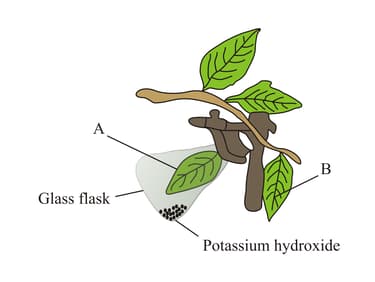
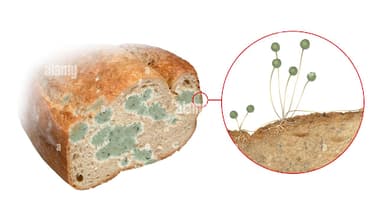
Refer to the given figure. It illustrates
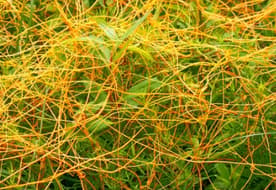
Identify the yellow thread-like structures twining around the stem, branches, and leaves of some trees. It neither has leaves nor chlorophyll. How do they survive? From where do they get nutrition?
All plants with green leaves, from the tiniest mosses to big woody trees, synthesise, or create, their own food through photosynthesis. All heterotrophs depend on plants for their food. Can you explain how plants produce so much food that they are able to feed other organisms that are dependent on them?
3 to 4 leaves of the same plant were covered with black paper without removing them from the plant. The way the black paper was cut and fixed to the leaves is shown in the figure. Two days later, these leaves were collected. They had their green colour removed and were placed in an iodine solution. In the pattern depicted in the illustration, the leaves turn blue-black. Can you tell by looking at the figure whether starch is present or not?
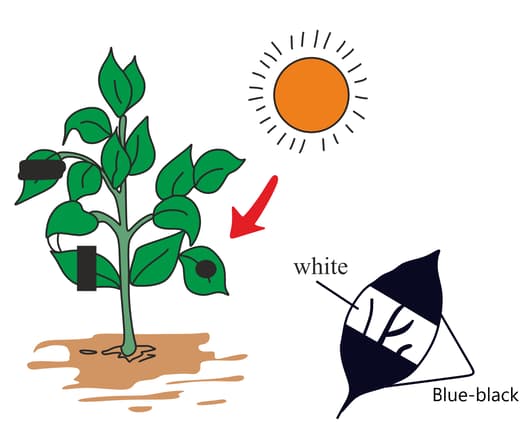
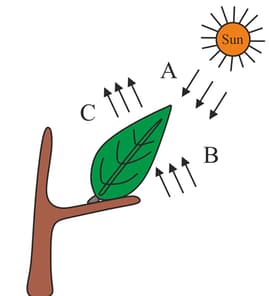
Identify the arrow A, B and C from the given diagram and explain their roles in the photosynthesis process.
The sun provides energy for all living things. Rita wrote two statements to explain the above fact.
Statement1: All autotrophs prepare their own food in the presence of sunlight.
Statement 2: _____
What of the following should be Statement 2?
